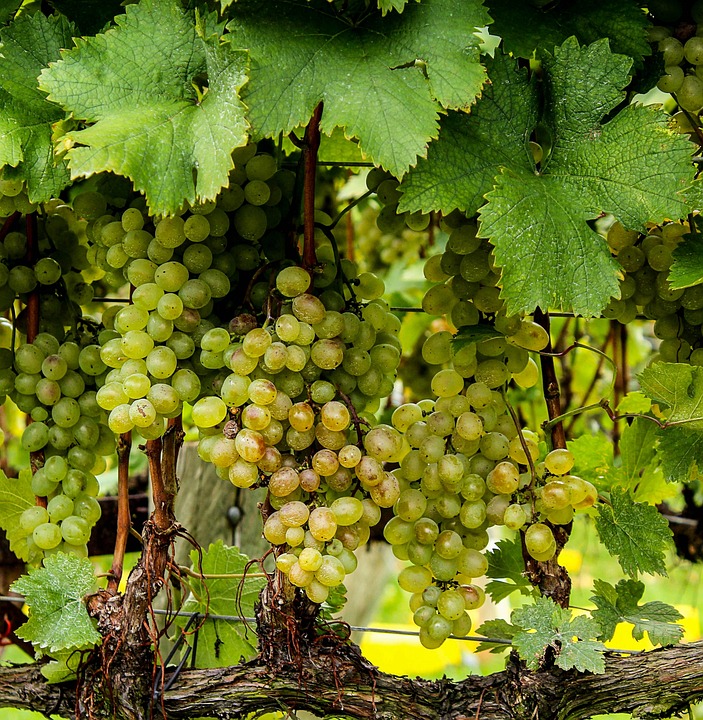Introduction
Growing fruits in your backyard can be a rewarding and fulfilling experience. Not only do you get to enjoy the delicious taste of fresh, homegrown fruits, but you also have the satisfaction of nurturing and harvesting your own food. If you’re a beginner looking to start your own fruit garden, this guide will provide you with the essential information and tips to get started. From selecting the right fruit trees to caring for them throughout the seasons, this article will help make fruit growing easy and enjoyable.
Choosing the Right Fruit Trees
The first step in starting your fruit garden is selecting the right fruit trees for your backyard. Consider the climate in your region and the amount of sunlight your garden receives. Some fruit trees thrive in warmer climates, while others prefer cooler temperatures. Assess the space you have available and choose fruit trees that are suitable for your garden size. It’s also important to consider your preferences when it comes to fruits. Do you enjoy apples, oranges, or perhaps berries? Select fruit trees that grow the fruits you love to eat.
Preparing the Soil
Before planting your fruit trees, it’s crucial to prepare the soil properly. Most fruit trees prefer well-draining soil that is rich in organic matter. Conduct a soil test to determine the pH level and nutrient content of your soil. If necessary, make amendments to improve the soil quality. Add compost or aged manure to enrich the soil with nutrients. Ensure the soil is loose and crumbly to allow the roots to penetrate easily. Remove any weeds or grass from the planting area to minimize competition for resources.
Planting and Caring for Fruit Trees
Once you’ve selected the right fruit trees and prepared the soil, it’s time to plant them. Dig a hole that is wide and deep enough to accommodate the tree’s root system. Gently place the tree into the hole, making sure it stands straight. Backfill the hole with soil, slightly tamping it down to eliminate air pockets. Water the tree thoroughly after planting to establish proper root growth. Throughout the seasons, provide regular watering, especially during dry periods. Apply mulch around the base of the tree to retain moisture and suppress weed growth. Prune the tree annually to maintain its shape and encourage proper growth.
Pest and Disease Control
Keeping your fruit trees healthy and free from pests and diseases is essential for a successful harvest. Regularly inspect your trees for signs of pests such as aphids, mites, or fruit flies. If an infestation is detected, use organic pest control methods like neem oil or insecticidal soaps to mitigate the issue. Ensure good air circulation around the trees by pruning and thinning branches. This helps prevent the growth of fungal diseases. Regularly monitor your trees for any signs of diseases such as powdery mildew or apple scab. If any issues arise, promptly take action to prevent the spread and treat the problem.
FAQs
1. When is the ideal time to plant fruit trees?
The ideal time to plant fruit trees is in the late winter or early spring, before the tree breaks dormancy. This allows the tree to establish its roots before the active growing season.
2. How often should I water my fruit trees?
The frequency of watering depends on various factors such as the climate, tree size, and soil type. As a general rule, deep watering once a week during dry periods is sufficient for most fruit trees. However, adjust watering based on specific tree requirements.
3. Can I grow fruit trees in containers?
Yes, many fruit trees can be grown in containers, making them suitable for small spaces or apartment balconies. Ensure the container has proper drainage, use a high-quality potting mix, and provide sufficient sunlight and water for the tree.
4. How long will it take for my fruit trees to bear fruit?
The time it takes for fruit trees to bear fruit varies depending on the type of tree. Some trees may start producing fruits within a couple of years, while others may take several years. Patience is key when it comes to fruit growing.
5. Do fruit trees require fertilization?
Yes, fruit trees benefit from regular fertilization to ensure optimal growth and fruit production. Use a balanced fertilizer specifically formulated for fruit trees, and follow the recommended application rates.




